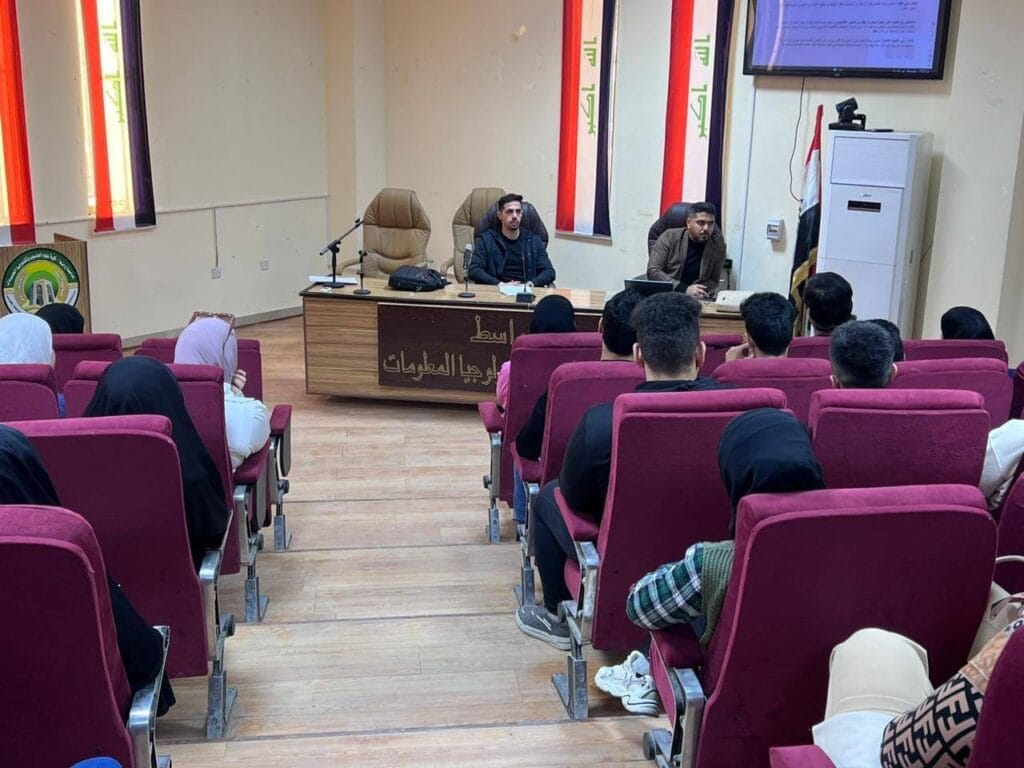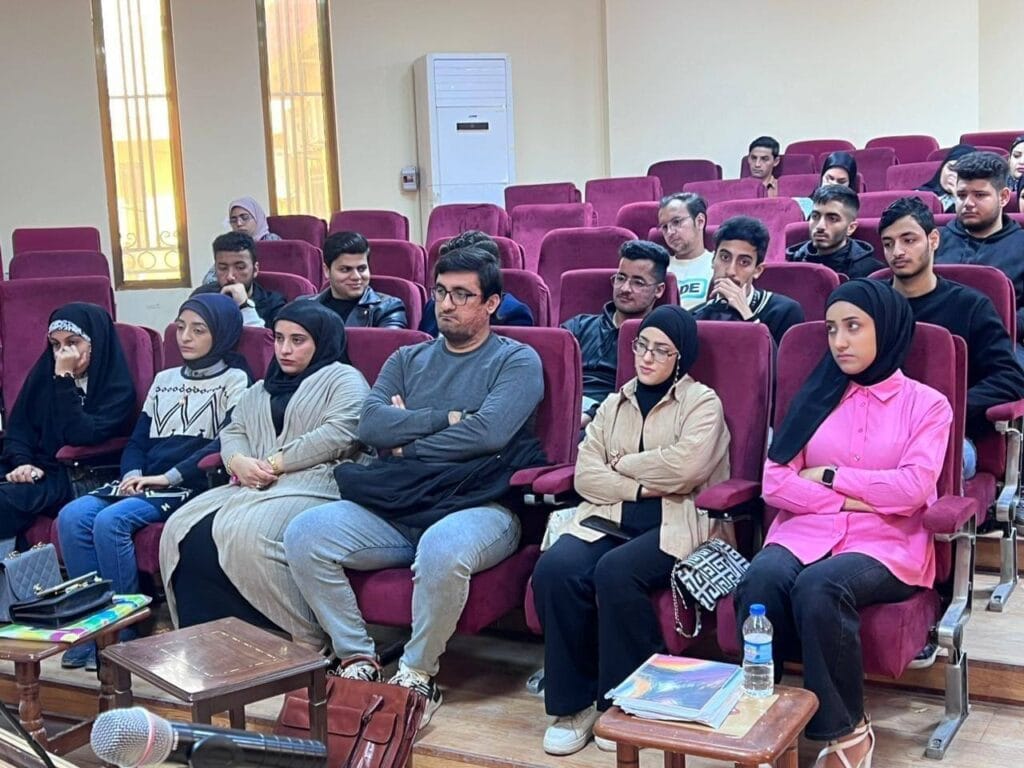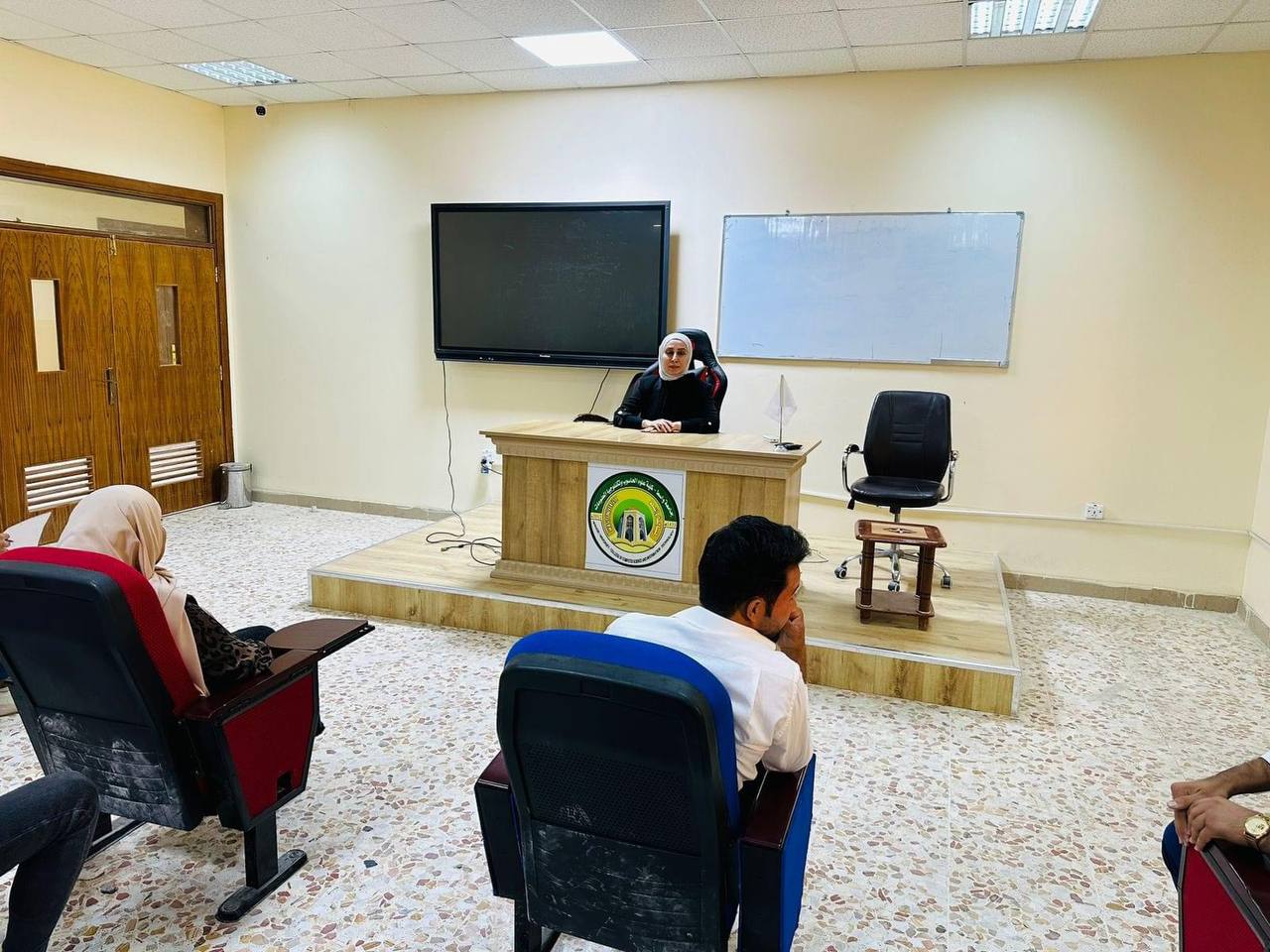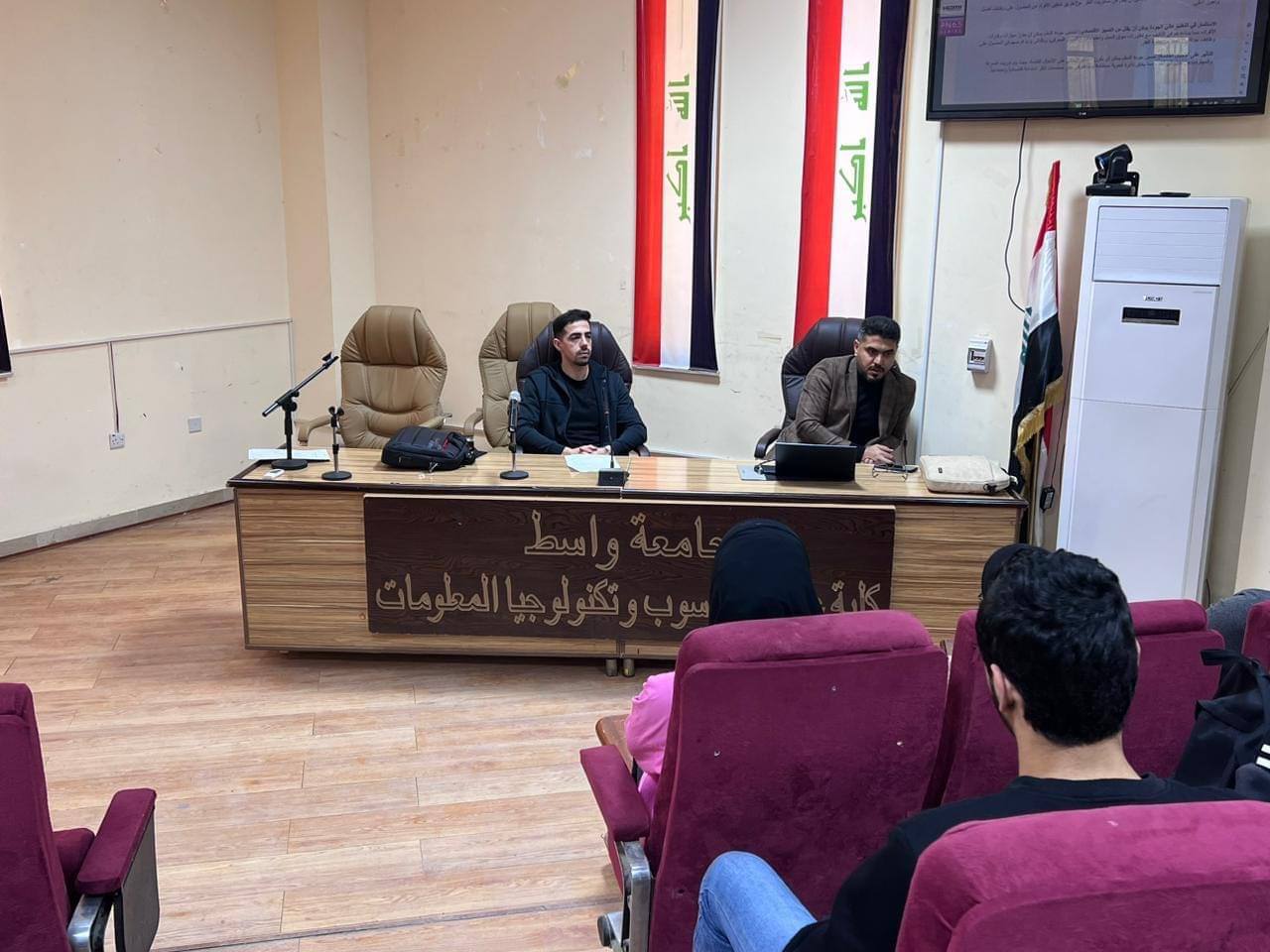
The College of Computer Science and Information Technology organized a workshop on “Learning Quality and Human Development” as part of the Sustainability Week events.
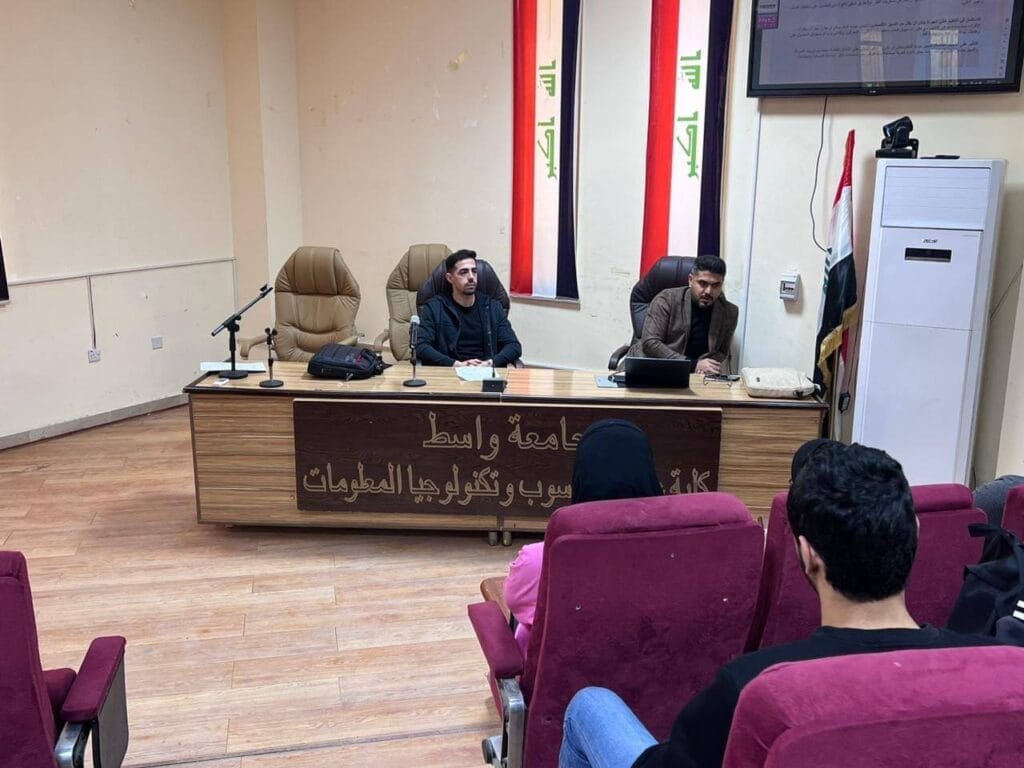
The workshop, presented by Mr. Ahmed Raad Abdul Hussein, Mr. Mayyas Khudair, and Mr. Mustafa Aziz, discussed how learning quality is a fundamental pillar for achieving sustainable human development, empowering individuals to acquire the necessary skills and knowledge to participate in the knowledge economy and knowledge society. The workshop addressed several axes: 1. The Impact on Poverty: Improving the quality of learning can reduce poverty levels by enabling individuals to access better jobs and higher wages. Individuals receiving high-quality education are more likely to access job opportunities with good salaries, chances for promotion, and professional development, thus improving their income levels and breaking the cycle of poverty. 2. The Impact on Economic Discrimination: Investing in high-quality education can reduce economic discrimination by providing equal learning and development opportunities for all segments of society, including marginalized groups and remote communities. 3. Enhancing Skills and Capacities: Improving the quality of learning can enhance individuals’ skills and capacities, helping them adapt to the evolving job market and the needs of the knowledge economy, thereby increasing their chances of obtaining good jobs and moving away from poverty. 4. Impact on Future Generations: Improving the quality of learning can have a positive impact on future generations by passing on knowledge and skills from one generation to another, creating a sustainable development cycle and contributing to the creation of economically and socially sustainable communities.
